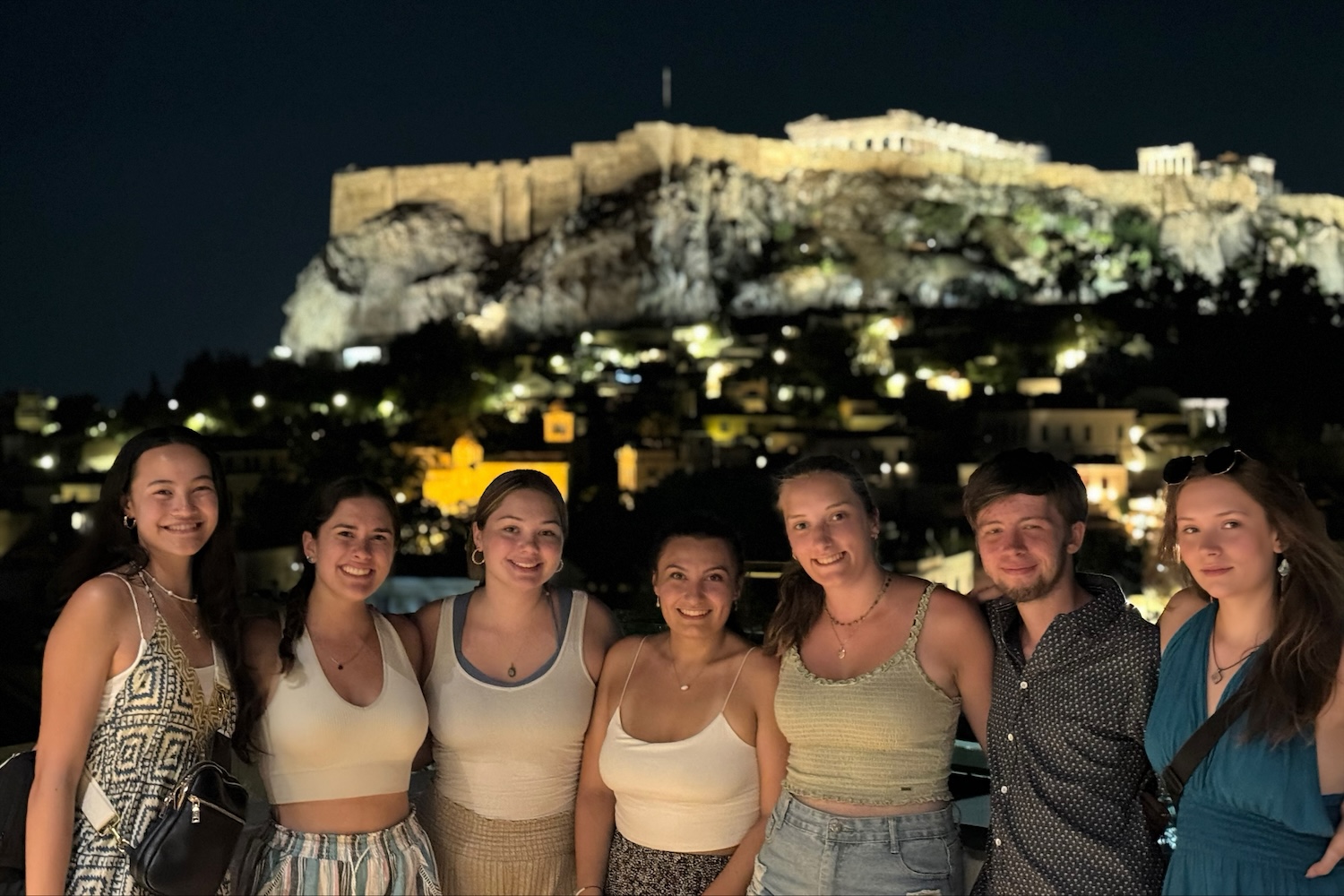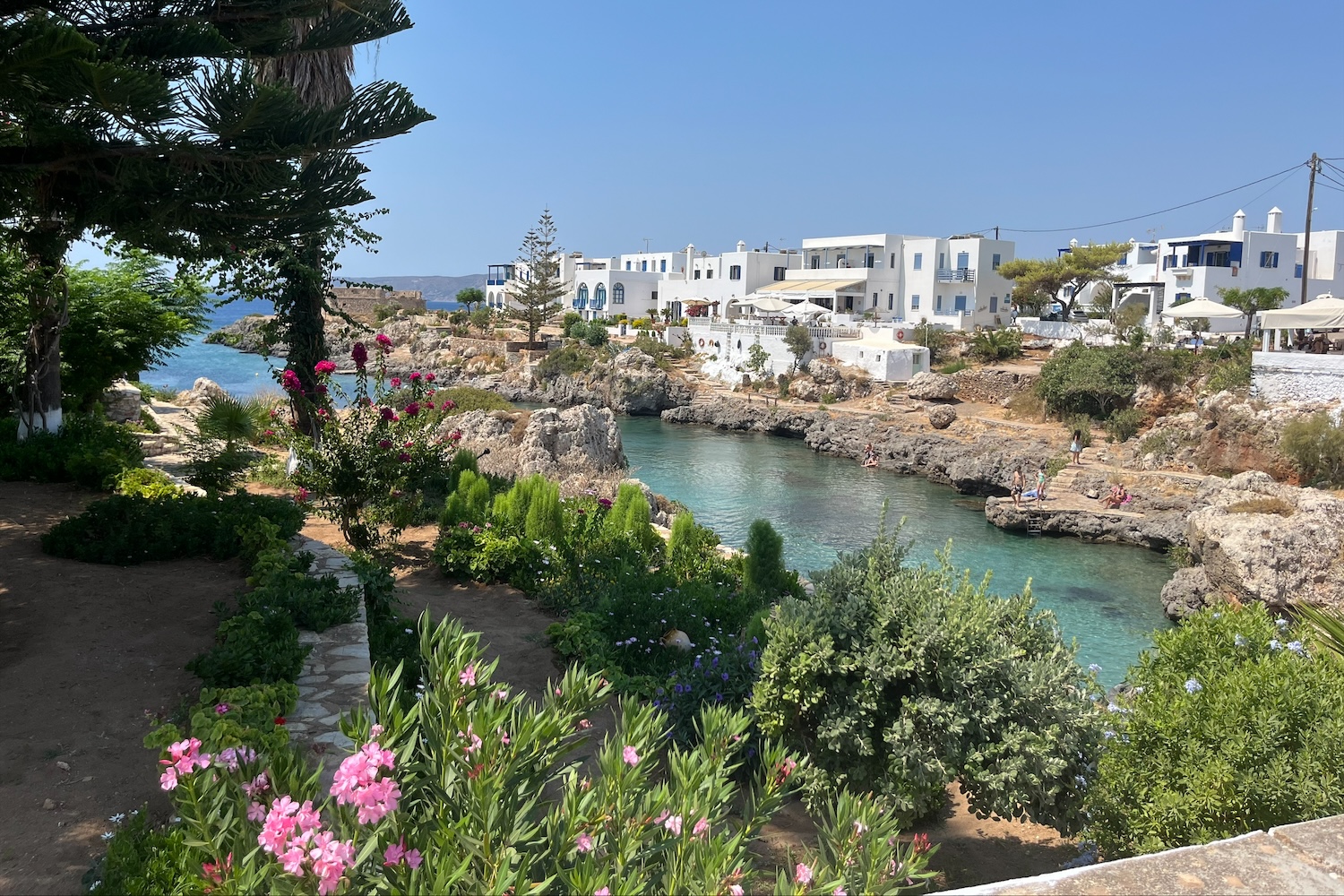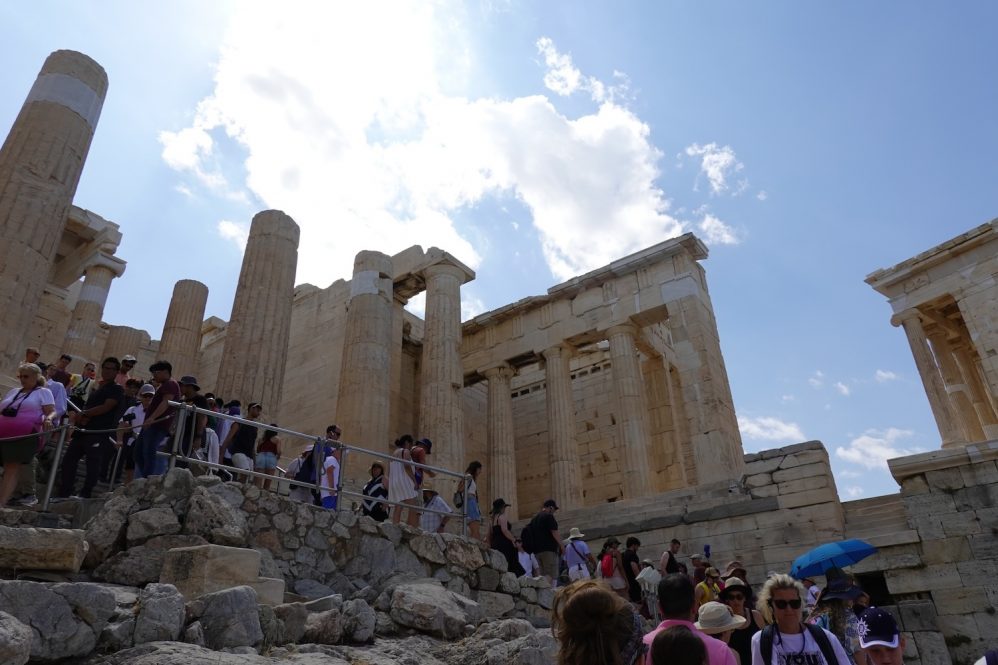Seven undergraduate students got an authentic perspective on Greece this summer as part of a new study abroad course designed by professor of anthropology Dimitris Xygalatas.
“This is a field school that relates both to my own culture and my background as an anthropologist. [I am Greek and] I did my doctoral fieldwork in Greece,” Xygalatas says.
Xygalatas created the 16-day Greek History and Culture field study course to highlight the connection between ancient Greece and modern Greece using an anthropological lens.
“I wanted the students to get a sense of the impact of our past on our heritage and our contemporary culture, but I also wanted them to get a sense of some of the problems that Greek society is facing,” Xygalatas says.
Participants began in Athens before moving on to Olympia, Sparta, Monemvasia, and Kythira, a small island of 3,000 people.
Students participated in guided tours, discussions, and workshops. They were also able to interact with locals.
The program featured archeological and sociocultural activities, including trips to popular historical sites, and allowed the participants to experience everyday Greek life firsthand.
Xygalatas touched on a wide range of topics, from looking at the archeological sites of major Greek cities to discussing Greece’s financial crisis, sports, violence, and the desertification of small towns.

Connecting Ancient Greece to modern culture
Xygalatas used his experience to highlight the sociocultural elements of the tours and sites students visited. Avery Hemingway ’27 (CAHNR) says that this made the experience more enriching for her.
“He was a native,” Hemingway, an allied health major and anthropology minor, says. “He would tell us stories [and] explain his family’s various traditions. [He connected] ancient Greek life to his family.”
James Gaston ’25 (CLAS), an anthropology major, says he enjoyed getting a local take on Greece. In Kythira, for example, the students had a Greek cooking lesson in the home of a former mayor. Gaston says it’s unlikely the group would have had an opportunity like that in a large city.
“It [showed us] Greek hospitality, a big part of their culture. [It allowed us] to see more of what their home life is like,” Gaston says.
Since this was the first time Xygalatas offered this course, he was skeptical of how students would feel about the itinerary. However, he says he was eventually really happy to see how much they enjoyed the destinations and experiences.
The program was modeled after Xygalatas’ summer course in Mauritius, where he also does fieldwork. He hopes to refine the Greece course and collaborate with the Aristotle University of Thessaloniki so students can develop a better cultural exchange.
Xygalatas allowed students to focus on their interests throughout the trip and for the final assignment.
“It’s one of the most fun parts of the program for me to see what grabs their attention,” he says.
Hemingway created a vlog of her time in Greece for her final assignment. She says she spotted some striking differences between Greek life and life in the United States, including how connected Greeks appear to be with their culture.
“Everyone was just very welcoming,” she says. “I think the biggest thing I took away would be that they’re very enriched in the history of their land. Everyone knows everything about ancient Greece, which always fascinated me.”
Gaston was fascinated by the culture around food and eating. He liked that the Greeks ate much later at night and that people spent hours in restaurants without servers interrupting them. He chose to write a paper on Greece’s culinary culture.
“I like trying a lot of new foods, and there was a lot of that to try in Greece,” he says.

A lasting impression
Xygalatas says this course gets students to interact with people and ideas outside their bubble.
“I always tell my students they should take two things out of their university education. The first is a proper understanding of the scientific process, and the second thing [which this program highlighted] is engaging with other people’s perspectives and putting yourself into other people’s shoes,” he says, adding that learning about other people’s experiences is especially important in a global and polarized society.
Hemingway, who loves to travel, says she’s looking forward to seeing more remote places during future adventures.
“As a regular tourist, you’re just listening and looking around and not fully taking it in,” she says. “But, when you slow down and reflect on what you just experienced, it brings it to a different level.”
Gaston says he never thought he would study abroad or travel on his own.
“Before this, I’d never really traveled by myself,” he says. “I always traveled with my family. But after the trip, I realized it’s not too complicated and opens more opportunities in my eyes.”



